“I believe absolutely that it is in sharing the most vulnerable aspects of our journeys that we support each other to find grace and strength and healing during equally challenging times.”
~ Baden Lashkov
Living a Resilient Autoimmune Life
Two of the most prevalent autoimmune diseases in the world affect the thyroid. Hashimoto’s Disease causes hypothyroidism (an underactive thyroid). Graves’ Disease causes hyperthyroidism (an overactive thyroid). Conventional doctors will often say that diet and lifestyle have no impact on these conditions, but one-by-one, patients are discovering the powerful difference they can make in their own health. Debra Hetrick’s story is inspiring for the dramatic improvements she’s gained, but also her persistent and holistic approach. There’s no area she doesn’t consider in making her health the best it can be, and her life as full and joyful as possible.
What were your first symptoms? When did you learn what it was?
My first symptom was fatigue. I remember I would go to my doctor and tell him how tired I was, that my old approach of increasing aerobic activity wasn’t snapping me out of it. He’d do a bunch of tests, everything would be normal. I’d go home and still feel tired only to return to the doctor with the same complaint. He would do a different battery of tests, all normal until the third appointment when he did an antibody test. Bingo, what should have been 30 was 1300! I was referred to an endocrinologist. That was seven and a half years ago.
Can you describe what it was like for you, when your condition was at its worst?
I developed excessive sweating upon exertion and palpitations in my chest. I was very scared by the palpitations and fearful I was getting ready for a heart attack. My primary care doctor called me at home with the results of my heart monitor test and told me to start taking baby aspirin daily until I met with my endocrinologist. They had detected atrial fibrillation. I also had low blood pressure which caused some feelings of faintness. If I didn’t immediately sit down (or get down on the floor if I wasn’t near a chair), I would come close to passing out. I would drink a glass of salt water while resting until I felt the pressure return to normal.
What treatment methods did you try before dietary intervention – conventional or alternative?
Somehow I chose dietary approach first, paleo for 6 months and then AIP for seven years now. Of course, I’ve made many reintroductions. Once assigned to an endocrinologist, I also used a conventional medicine approach with methimizole medication to control my symptoms. The combination of diet and medication worked well for me. After five years, my doctor didn’t feel I needed medication any longer since my dose was the smallest she could give and I seemed to be doing well. So she took me off medications and did frequent blood tests to track my progress. I did really well for this past year. I asked her to redo my antibody test and that dropped 1250 points. She was totally floored and asked me what I did. I told her about my diet and Dr. Sarah Ballantyne’s book, which I believe she ordered. She wanted to understand what foods do to the body and why. She lamented at having no nutritional education in medical school. I was very pleased with the reduction in antibodies because she and another doctor told me they would never change – they are what they are and they didn’t matter because it would not alter treatment. About a year and a half ago I tried intermittent fasting. It really helped me lose my last 20 pounds which helped my arthritic knees.
What other areas of your health improved simultaneously?
Blood pressure has improved. I lost 75 lbs. and eliminated non-alcoholic fatty liver disease. I was getting 15 migraines a month and these have reduced to approximately 5 a month now which are much less severe than they used to be.
How fast did you see results?
When I switched my diet, my brain fog cleared right away, and I also experienced a great reduction in bloating. Within three months, I had less inflammatory pain in my knees. The sweating and palpitations cleared with the medication which was prescribed as soon as I was diagnosed. The fatigue and exercise intolerance took much longer, perhaps a year or two. The low blood pressure and feeling faint took the longest, about 4+ years.
What symptoms still remain?
I still hope to eliminate all migraines. Migraines are multi-faceted and complex to heal. I’m currently getting Botox injections for migraines and they have worked for me. I think they have helped reduce the severity of the headache pain. I also have osteoarthritis in both knees and get cortisone injections on a regular schedule. I have no Graves Disease symptoms at all. Overall, my symptoms have improved 95%.
What other things do you do outside of diet to support your health and healing?
I remembered a period of time when I was preparing nutrient–dense foods and being so proud that I knew why I was eating what I was eating and that it would heal me. What a change that was from my old ad libitum way of eating. I learned that word when I was preparing a presentation on intermittent fasting for a discussion class I’m in. I liked that word. My eating had been ad lib and now it was planned with a purpose.
After diet, I focused on supplements. I tried to make sure they were clean with a minimum of fillers and preservatives. I also focused on sleep – seven and a half hours seems to be good for me. I turn down the lights in the early evening and I use blue light blocking glasses at night. Then I focused on cooking utensils, making sure that they were non toxic. I also eliminated toxic personal care products and toxic household cleaning products.
All the while I focused on exercise. I joined a hiking club. We hike every Sunday morning about 5 miles. I enjoy being in nature and approach it with a feeling of reverence. When the hike is over we all rest and share food and drinks while we socialize. It’s so good to have a community of people with whom I share values. I train a couple of times a month with a trainer. I think of her as a resource. I’m not that great at remembering new exercises, so it’s good to have her to review my posture and movements. I’ve had two shoulder replacements and she helps adapt exercises for that. I work out doing interval training and weights 2 or 3 times a week. I love an hour-long stretch class that I take once a week. I practice at home once or twice a week too.
I also practice meditation. This is an important piece of the puzzle. I’m not where I want to be with this. I can call upon it when I feel a need and it definitely helps. I’m working on including it as a preventative and making it part of my daily routine. I live alone, so I’ve prioritized time with friends. I participate in a weekly discussion group, a monthly book club, a monthly poker game, a weekly painting class. These provide opportunities to meet new people and visit with old friends. There are also movie and dinner dates with friends.
How strict were/are you on the dietary protocol? Any “cheats”?
I am very strict with all my food choices. No cheats. Restaurants present me with challenges to staying on protocol. I’m not in control of what is going into the food and therefore I choose to eat very simply at restaurants and as cleanly as possible. But what can I say, I’m not in control.
Do you intend to do this diet forever, or do you hope to wean yourself off it eventually?
I will probably stay on this diet (with reintroductions) forever. I’m still making reintroductions. This week I tried oats. I’ll stop with them for about a month. Not sure if I had a reaction or a bit of a bug. I’ll resume later and see how it goes.
What were/are the challenges for you in sticking to the diet?
Finding the time and energy to cook is definitely a challenge. Batch cooking and freezing are my friends. I always have nomato sauce, pesto sauce, homemade applesauce, liver pate, cauliflower cheese in the freezer to help make my simple meals tasty. For the last 6 months or so, my cooking has become very simple: a protein, vegetable and salad. My plan for 2020 is to start trying more new recipes. I still find eating out a challenge. I don’t have reactions but I definitely know that restaurants use a lot of cost-saving moves. Their olive oil isn’t really 100% olive oil – it’s a blend of olive and something non-AIP. The meat isn’t sourced the way I like, the produce isn’t always organic. I do the best I can and don’t eat out that often.
Who supports you in your healing journey?
Early on, I found an AIP Meetup group. That was a real godsend. I have maintained friendships with many of these people. It was so nice to have this in common with others. Getting together and sharing stories and recipes was wonderful. My old friends were not very supportive at first. I think they were reeling from the loss of their eating buddy, because eating out was very difficult for me. I always had a reaction whenever I tried it. I didn’t like to cook for them because the food was very different tasting from what they were used to from me. They have come around now and consider my eating limitations when inviting me for dinner. I really appreciate this. My family never supported me and actually mocked my eating but that’s a whole other story.
What advice would you give to people with autoimmune disease who are just starting to consider diet and lifestyle changes?
Don’t just take the medication(s) the doctor may prescribe. Be proactive and try working with diet. My doctor initially told me that diet was not a factor in my disease. I didn’t argue, I took the medication she prescribed and went home to work on the diet because I really believed there was a connection. I read that if medications are used, they may only be masking the symptoms and not working to eliminate the root cause, and will only lead to other tissues being affected by other autoimmune conditions. I’m glad I followed this path.
I was just thinking today that the true measure of my success on this healing diet was something I did last September. After years of not traveling because of my symptoms of fatigue, food restrictions, and frequent migraines, I decided to do a bucket list trip. I booked a 4 week tour of New Zealand and Australia. I stayed in hotels and ate in restaurants. I will admit that I was ready to come home after 3 weeks, an important lesson for the next trips. But that’s the point, I’m ready for next trips. I would never have believed this feeling 6 years ago.
Other Healing Stories
This is part of a series of autoimmune success stories. Click here to see the full list. They are also a regular feature of my podcast: Phoenix Helix.

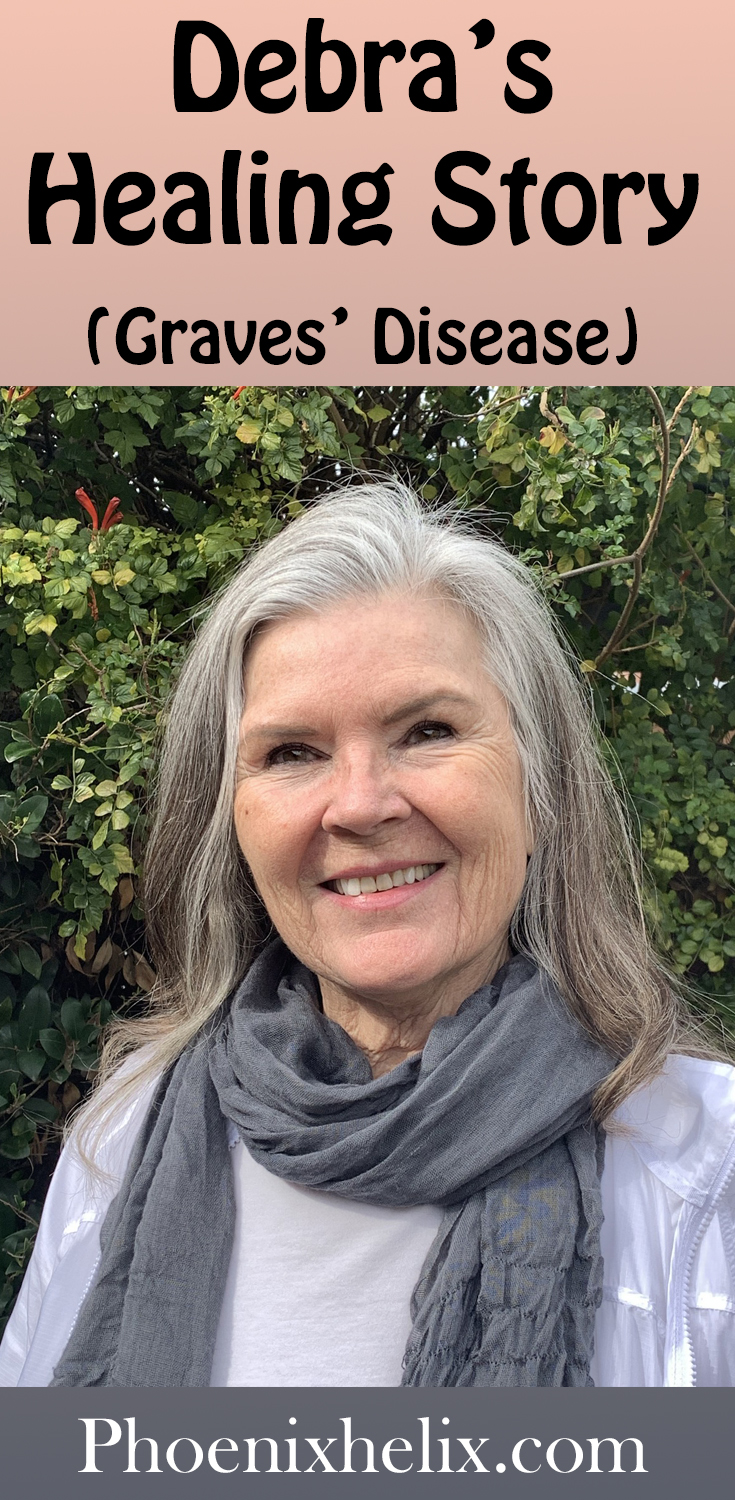
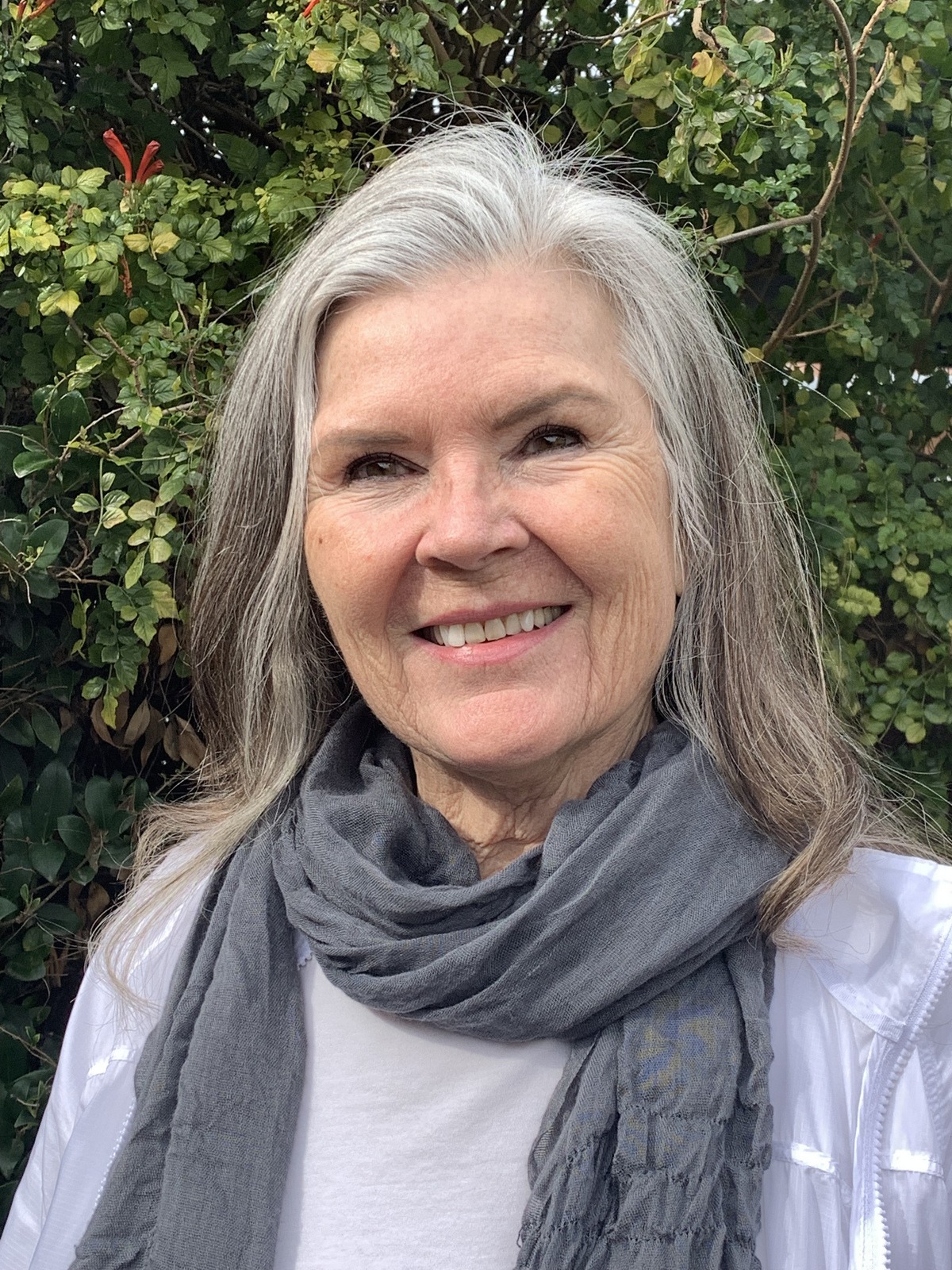
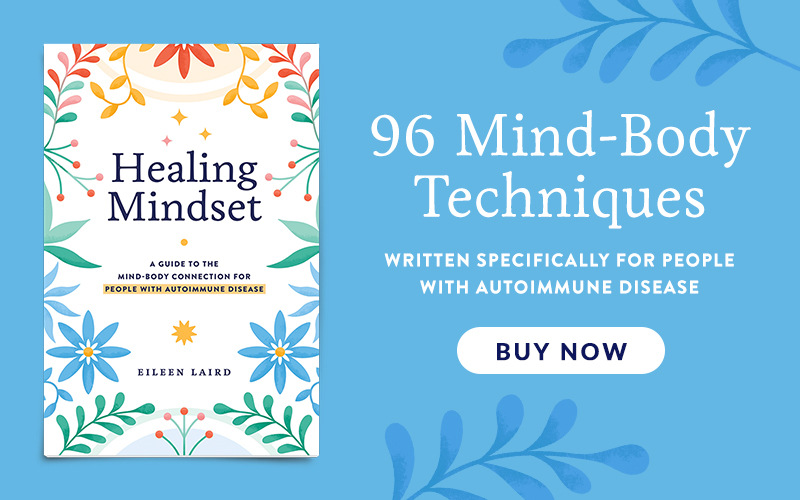
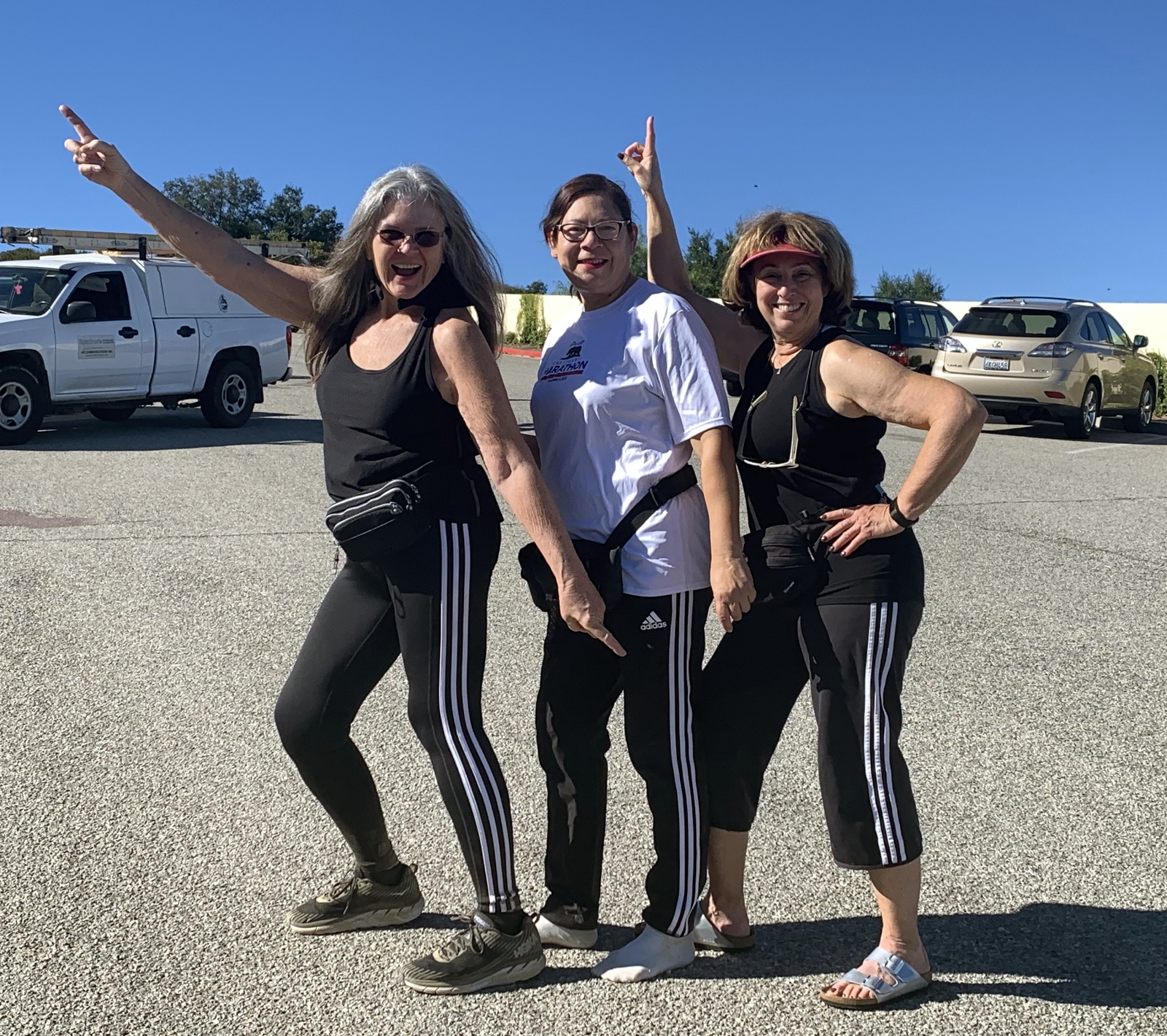

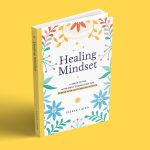

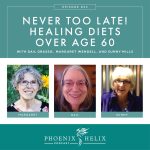
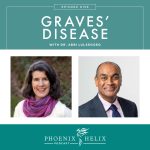


So glad to read a success story about Graves. It’s the first one I have found in over 2 years. Authors and other experts always focus on Hashimotos. Thanks for talking about your success with Graves.
I’m so glad this story resonated with you Lisa. My goal this year is to feature more diagnoses that aren’t discussed as frequently.